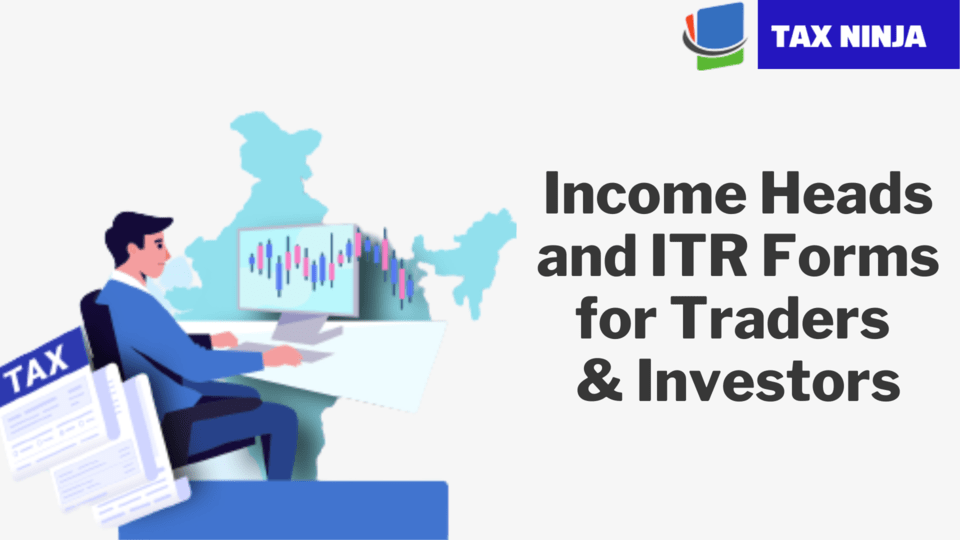

As a trader or investor, it is crucial to have a clear understanding of the income heads and income tax return (ITR) forms relevant to your financial activities.
In this article, we will explore the income heads applicable to traders and investors and discuss the corresponding ITR forms.
Q Am I a trader or investor or both?
A Investor is an individual who engages in long-term investments with the intention of earning income through appreciation of capital and dividends. When shares are sold, the income derived is subject to taxation known as "capital gains," which is further categorized into long-term or short-term capital gains depending on the duration of share ownership.
& Trader is an individual who participates in buying and selling activities with the intention of making profits from the increase in prices. Their income from trading is treated as business income.
Furthermore, the income generated from equity intraday trading is classified as speculative business income. On the other hand, income from trading in Futures and Options (F&O) is categorized as non-speculative business income. Additionally, the income derived from equity delivery trading can be treated either as capital gains or business income.
Additionally, one can be both a trader and an investor at the same time.
Q What if I have identified myself as Investor?
A In that case, you will deal with two types of taxation:
Q What if I have identified myself as a Trader?
A Traders engaged in buying and selling securities or derivatives are classified under the business category. As per the Income Tax Act, 1961, profit or loss arising from such activities is reported as business income.
If an individual engages in frequent buying and selling of stocks for shorter durations, it is advisable to categorize such activities as non-speculative business income rather than Short-Term Capital Gains (STCG).
Taxation: In contrast to capital gains, business income does not have a fixed tax rate. Instead, both speculative and non-speculative business income must be combined with your other sources of income, and taxes must be paid based on the tax slab in which you belong.
Q How to calculate Trading Turnover?
A The calculation of trading turnover varies depending on the type of trading activity:
Q So which forms should I file?
A If a trader generates income from capital gains, they should file their income tax return using the ITR-2 form.
If a trader earns business income, they should file their return using the ITR-3 form. This means that if you are into F&O trading and intraday equity trading, you need to file ITR-3.
However, if the trader has opted for the Presumptive Taxation Scheme, they can use the ITR-4 form to file their income tax return.
Recommended Read : TAX HARVESTING – Save tax Upto Rs. 10,000 on LTCG